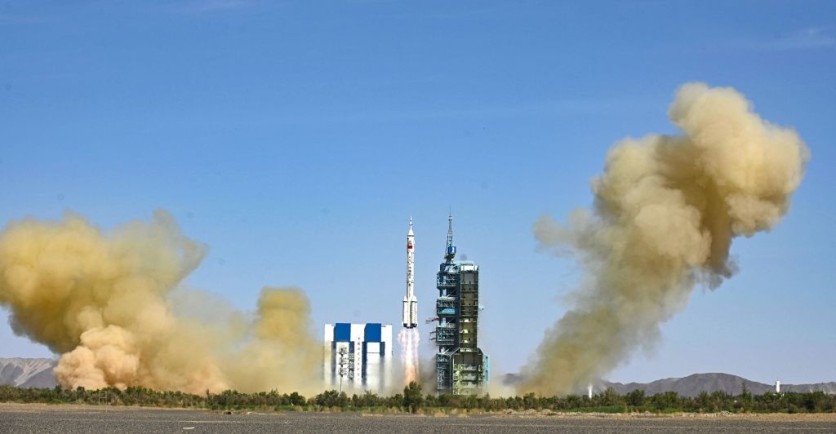Recent reports claimed that a massive Chinese rocket was heading toward Earth. Scientists claim it is moving in an uncontrollable direction and are still unsure of its exact landing location and timing.
However, a western Philippine region on Monday, Aug. 1, was hit by the debris of a Chinese rocket that boosted the deployment of China's new space station, according to a report by the AP.

Were There Reported Damages?
According to a Filipino official, there were no indications of any damage in a western Philippine region where it was reported that Chinese rocket debris had fallen.
An official from the Philippine Space Agency, Marc Talampas, said authorities had been told to keep an eye out for rocket debris that may have splashed down into the waters of the province of Palawan.
According to Talampas' statement with AP, they are now monitoring the situation closely. They have also issued a warning to the public, advising them to be cautious, avoid coming into contact with any possible floating debris, and contact their local authorities right away.
Massive Chinese Rocket
The majority of the Long March-5B rocket's final stage burned up after entering the atmosphere, according to a report published on Sunday, July 31, by the China Manned Space Agency. It also reported that the booster would be permitted to fall aimlessly.
This is located on the seas of southeast Puerto Princesa, the capital city of Palawan.
According to AP's report, the Chinese Space Agency did not communicate information about the rocket debris to the Philippine Space Agency.
The Wentian laboratory was launched into orbit on July 24 by China's most potent rocket - the Long March-5B. It was firmly fastened to the Tianhe main module, which houses three astronauts.
The Chinese government earlier reported that the remains of a different cargo spacecraft that accommodated the station ended up falling into a predetermined area of the South Pacific after the majority of it burned up on reentry.
Read also : China's Space-Based Solar Power System Test is a Success! Comparable To NASA's SPS-ALPHA?
China Under Fire
China has already come under fire for letting rocket stages fall to Earth without being controlled. In fact, NASA accused China of "failing to meet responsible standards" regarding space debris last year after a Chinese rocket's debris fell in the Indian Ocean.
Tiangong-1, China's first space station, lost control in 2016 and plunged into the Pacific Ocean, according to Beijing. In May 2020, an uncontrollable 18-ton rocket also fell.
In 2007, China was criticized for using a missile to take out one of its retired weather satellites, leaving behind a field of debris that other nations claimed could endanger other satellites, according to AP.
This article is owned by Tech Times
Written by Joaquin Victor Tacla
![Apple Watch Series 10 [GPS 42mm]](https://d.techtimes.com/en/full/453899/apple-watch-series-10-gps-42mm.jpg?w=184&h=103&f=9fb3c2ea2db928c663d1d2eadbcb3e52)



